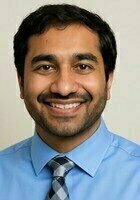Connect with hundreds of tutors like David
Who needs tutoring?
FEATURED BY
TUTORS FROM
- YaleUniversity
- PrincetonUniversity
- StanfordUniversity
- CornellUniversity

David
About Me
I'm a 2014 graduate of Princeton University and an aspiring law school student. At Princeton, I majored in International Affairs, and received a certificate in theater from the Lewis Center for the Arts. I also combined my passions for those two fields and my love of comedy to create a sketch and variety talk show, where I got to know amazing students and professors from all kinds of different fields. I'm excited to carry that energy forward by working with students of all backgrounds who are preparing for the next big phase of their lives. As a tutor focusing on Standardized Test prep (particularly for the LSAT), I emphasize practicality and flexibility above all. Tests are stressful enough; your preparation process should be all about developing the skills you need in the way that works best for you give your background. In a lot of ways, you've been preparing for these tests your whole life, especially in areas like Reading Comprehension - my job is just to guide you to some tools and tactics that will enhance your own knowledge and bridge any gaps between you and the exam. I'll work to make sure you feel confident when you attack the test, even in tricky sections like Analytical Reasoning (Logic Games).
Education & Certifications
Test Scores
Q&A with David
Connect with a tutor like David
Connect with a tutor like David
Tutors with Similar Experience


